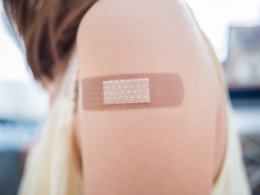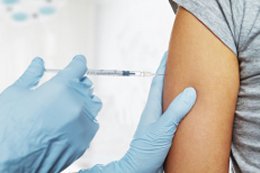 The measles, mumps and rubella (MMR) vaccine has recently been in the news as a result of reports of measles outbreaks in several parts of the country. According to the Centers for Disease Control and Prevention (CDC), outbreaks have been reported in California, Illinois, New York, Texas and Washington, with more cases of measles already confirmed in 2019 (269 as of March 14) than all of 2016 and 2017 combined (206).
The measles, mumps and rubella (MMR) vaccine has recently been in the news as a result of reports of measles outbreaks in several parts of the country. According to the Centers for Disease Control and Prevention (CDC), outbreaks have been reported in California, Illinois, New York, Texas and Washington, with more cases of measles already confirmed in 2019 (269 as of March 14) than all of 2016 and 2017 combined (206).
While the CDC recommends vaccination against measles, mumps and rubella for most individuals (with limited exceptions for pregnant women and individuals with certain other health conditions), “[d]uring an outbreak is when you see an influx of patients who would otherwise be vaccine-hesitant,” according to an infection control nurse in Washington quoted by CNN. Unfortunately, although getting the MMR vaccine can significantly reduce an individual’s risk of contracting measles, it carries certain risks as well. Continue reading

 With vaccine injections, it is normal to experience acute stinging or dull pain that dissipates in the hours following the vaccination. It is not normal for this pain to linger, worsen or spread to other parts of the arm or shoulder. Unfortunately, while this pain is not normal, studies show that it is becoming
With vaccine injections, it is normal to experience acute stinging or dull pain that dissipates in the hours following the vaccination. It is not normal for this pain to linger, worsen or spread to other parts of the arm or shoulder. Unfortunately, while this pain is not normal, studies show that it is becoming  Although the Centers for Disease Control and Prevention (CDC) recommends vaccination as the best way to prevent the spread of the flu and other diseases, it also says that certain people should not get vaccinated. Since not getting vaccinated carries obvious risks, anyone who has questions about whether it is safe to receive a particular vaccination should consult their doctor.
Although the Centers for Disease Control and Prevention (CDC) recommends vaccination as the best way to prevent the spread of the flu and other diseases, it also says that certain people should not get vaccinated. Since not getting vaccinated carries obvious risks, anyone who has questions about whether it is safe to receive a particular vaccination should consult their doctor.